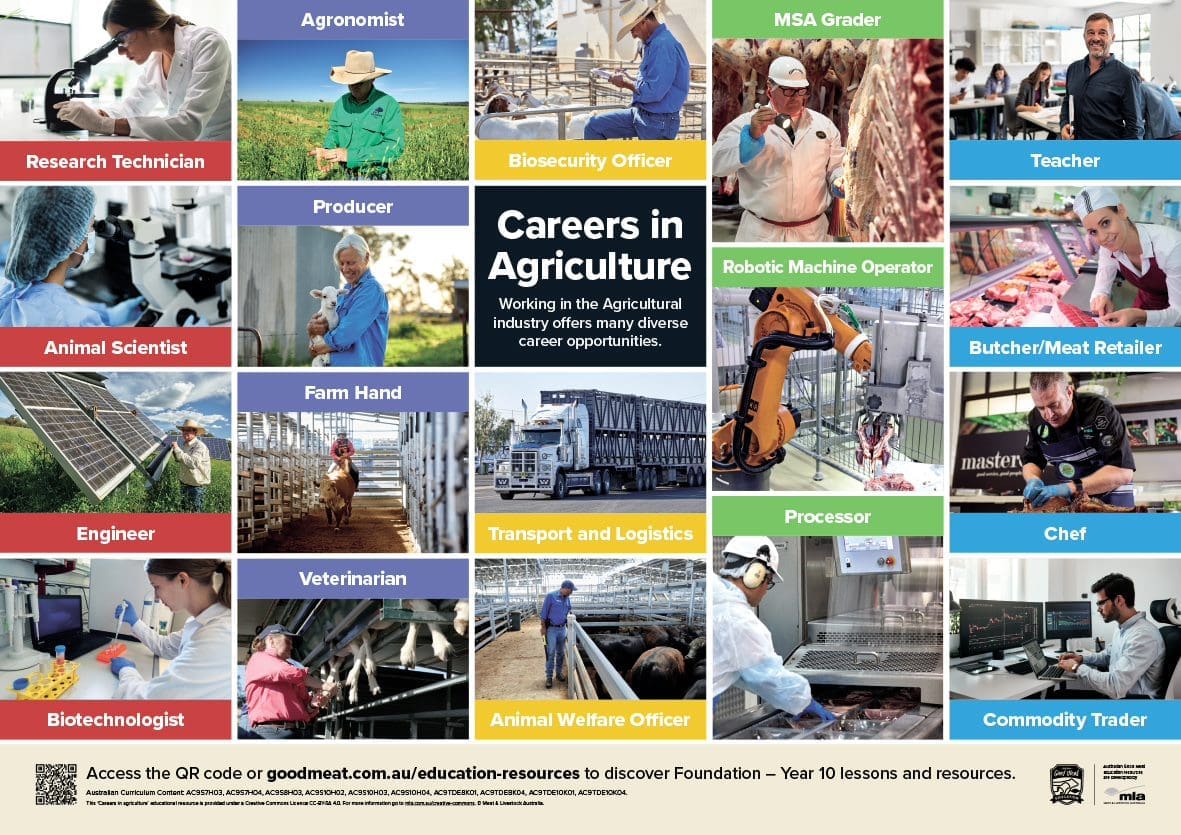MEAT & Livestock Australia is calling for parents to help drive awareness of its education resources, which aim to make the red meat industry a focus of primary and secondary school lessons.
The organisation developed an in-depth year-by-year, lesson-by-lesson teaching resources aligned to the national curriculum.
Recent years have heard plenty of discussion about the need for industry to invest in early childhood education – with plenty of research suggesting that the early years of a young person’s life are the most formative.
In response, MLA and the Primary Industries’ Education Foundation (PIEFA) have surveyed teachers to find out what resources they need and have developed ‘off the shelf’ lesson plans to incorporate the meat industry into classes. The resources are targeted at all subjects across the board – including Technologies, Science, Mathematics, English, and Humanities and Social Sciences.
MLA group stakeholder manager Samantha Jamieson said the main challenge was making sure teachers were aware of the material. She said it was a great resource to arm parents who would like to see the industry reflected in classrooms.
“If you want to see curriculum that is aligned to the Australian red meat industry, then go and talk to your school and show them the website,” Ms Jamieson said.
“This is a program that has been created by teachers for teachers. Whenever we show teachers that it is Australian content and that it is fact-based and not just about putting a positive spin on the industry they seem to understand.”
Ms Jamieson said she has had her own experience as a parent approaching the school her children attend in Sydney, with a teacher giving an unrealistic impression of the industry.
“I actually went to the school and asked if I could show my daughter’s class the virtual reality paddock to plate tour MLA has available,” she said.
“I explained that this wasn’t a brainwashing exercise, it was more about giving the kids an understanding of the production because they are so removed from it.
“The virtual reality goggles turned out to be a big hit and the school actually asked if more classes were able view the paddock to plate tour.”
About the curriculum program
The educational resources were launched at the beginning of last year, giving teachers easy to use lesson plans and students exposure to agriculture and the red meat industry. It has lesson plans, card games, posters and instructional videos for students of all years and all subjects – not just agriculture as a subject on its own.
The lessons teach anything from what is a cow/calf/bull, what are the different breeds and where do they come from, right through to how meat grading works and the role of cattle in the carbon cycle.
It also demonstrates the different skill required by the agricultural industry.
Ms Jamieson said it was important the lessons were purely fact-based and did not give the impression of being industry propaganda.
“When talking with the schools, they didn’t want us going in and just telling kids to eat more red meat – they only wanted fact-based information,” she said.
“We do show the nutritional attributes of eating meat, but we also show the facts of how it is produced.”
In-order to align with the curriculum, MLA and PIEFA utilised the learning outcome guidelines provided by the Australian Curriculum Assessment Reporting Authority to create the lesson plans and student content.
Helping time-poor teachers
The next challenge is making teachers aware of the resources and getting them to utilise them in their classrooms.
MLA has been running an advertising campaign on social media and through media outlets directly targeting teachers. So far they have had 10,895 downloads.
Ms Jamieson said the main aim of the program was to give teachers confidence in teaching ag-related content.
“We know that a lot of teachers these days don’t have ag backgrounds and a lot of them have anxiety about teaching something they know little about,” she said.
“Teachers have the choice to create their own content, but because they are so time poor they usually prefer content off the shelf.”
Ms Jamieson said the program was targeted at schools across the board, whether they are from the city or the country.
“We know it is important to get this type of content into city schools, but the country schools would also find these useful and relevant for achieving the curriculum learning outcomes,” she said.
- To see the education resources click here

